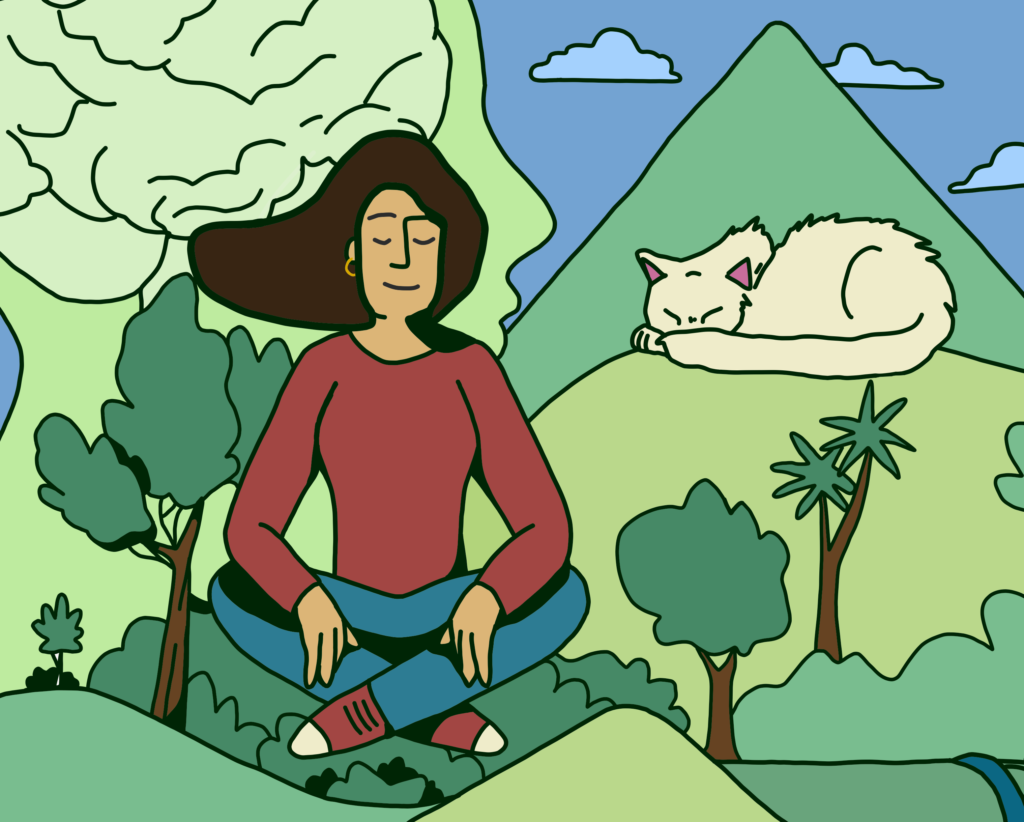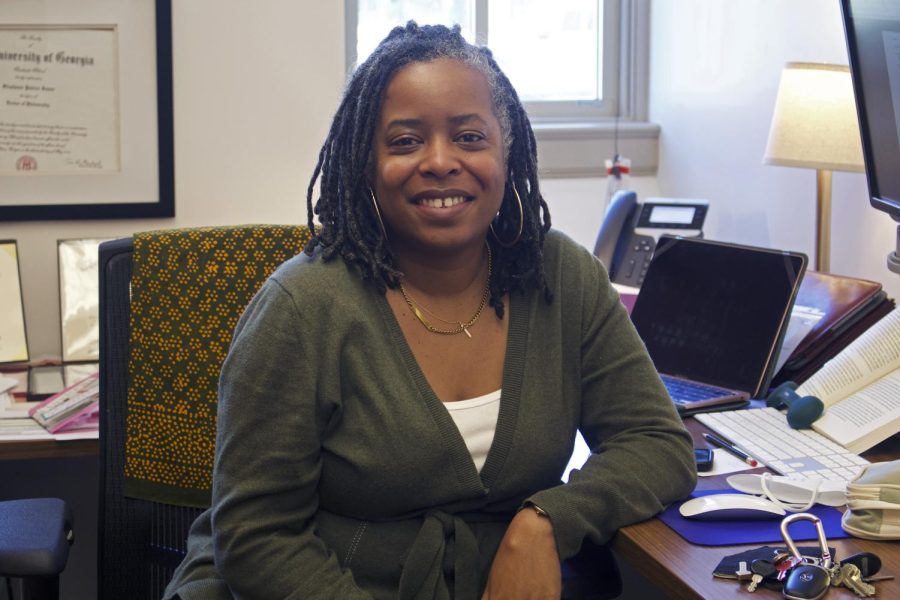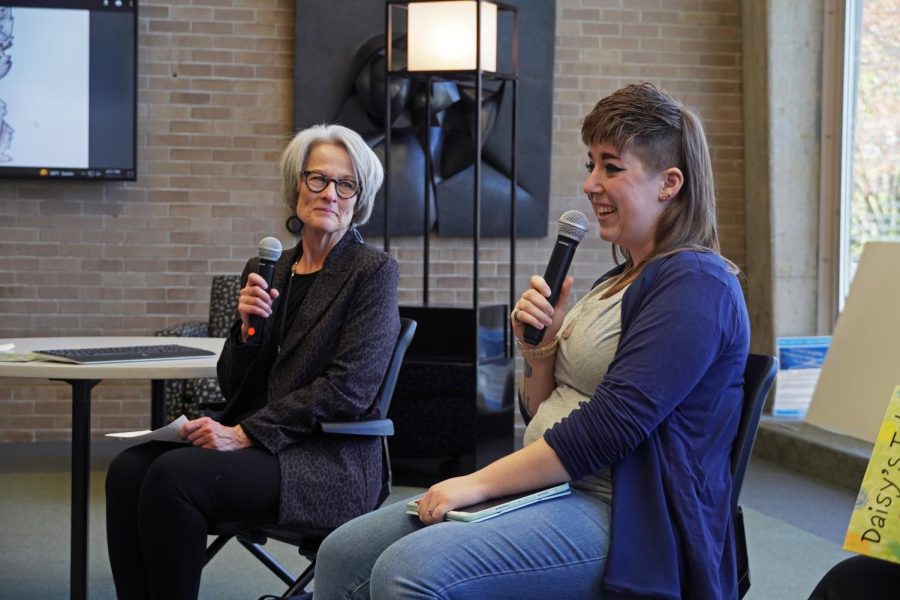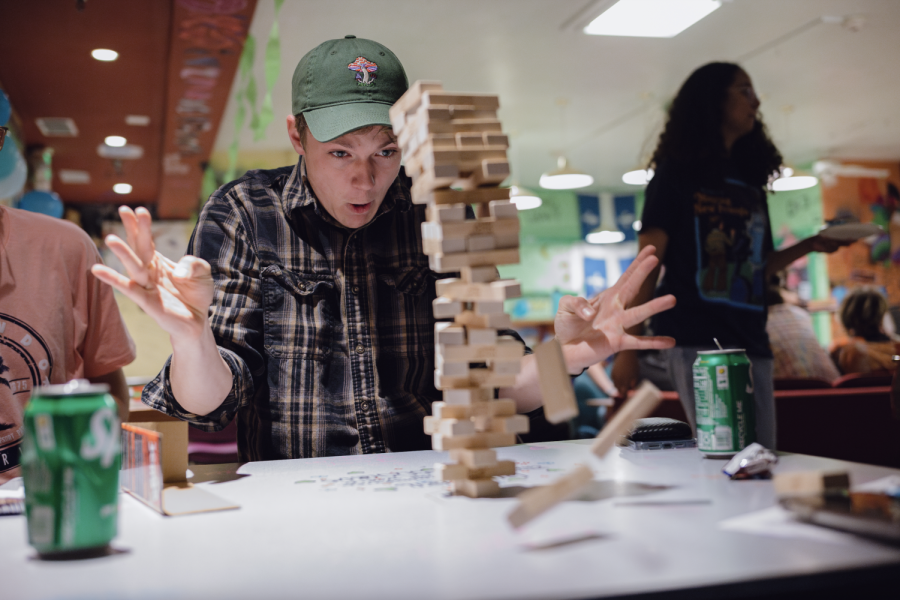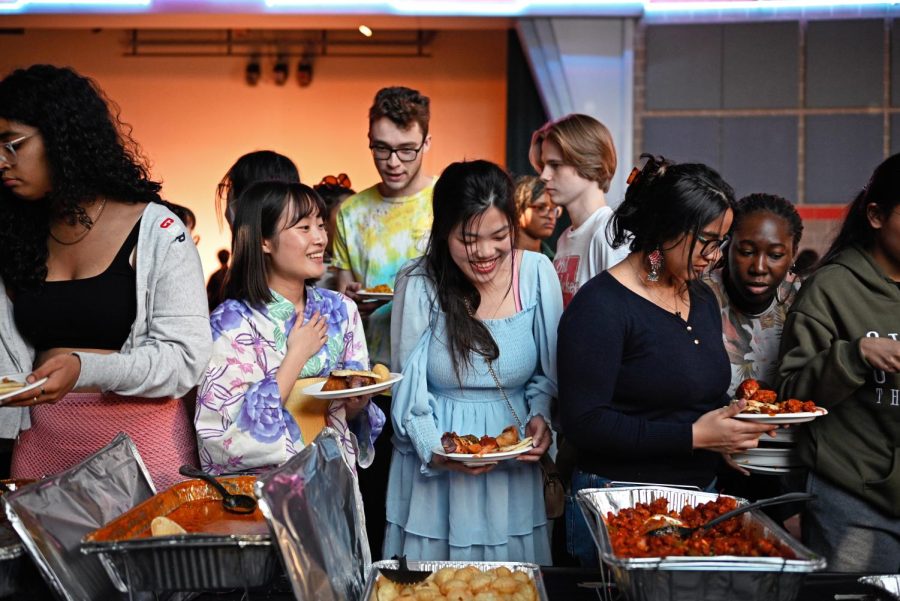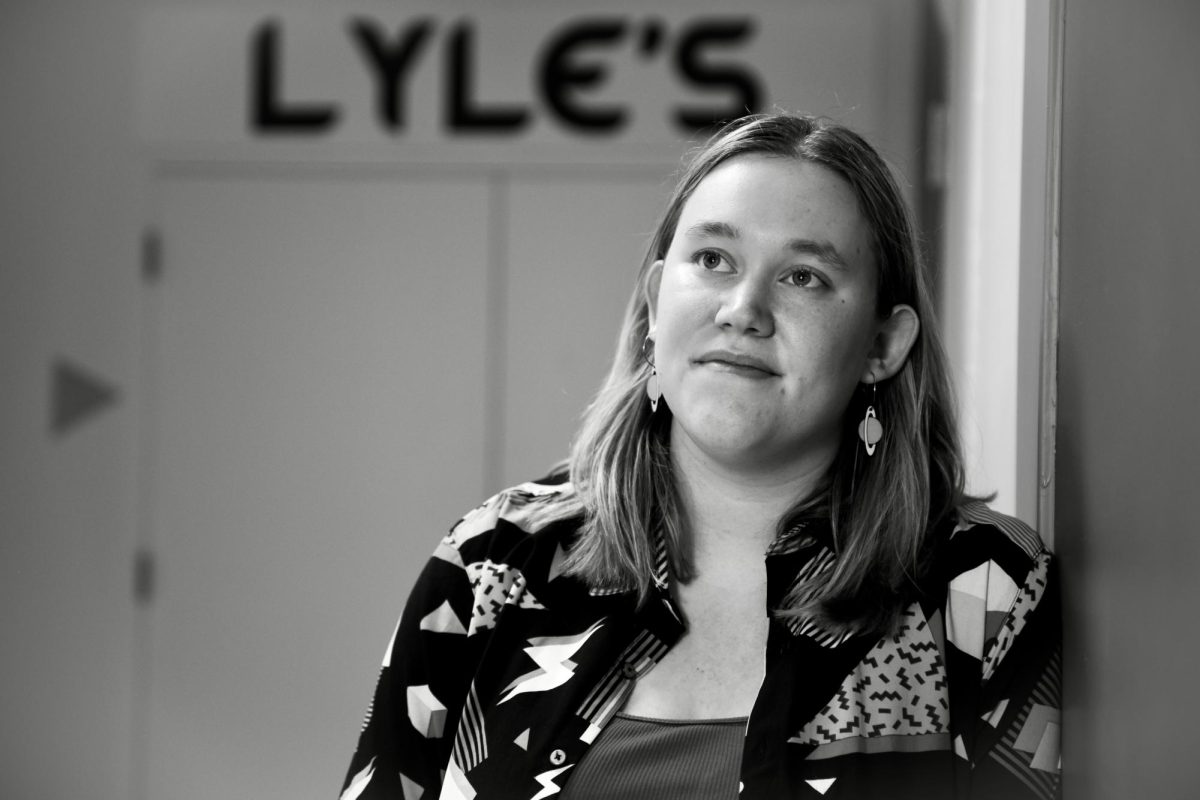By Alanis Gonzalez
gonzalez@grinnell.edu
Wow. This is Awkward.
Just kidding! It’d be more awkward if I stopped keeping all you wonderful readers informed on mental health. And so we beat on, as Fitzgerald himself would have said, despite how much he needed rehab and antidepressants, and therefore, should not have just kept pushing forward. (Also, are we sure he wrote that line? Sounds like something Zelda might have said … but that is for another column.)
If you look at the top left corner of the opinions print page, you’ll notice my email no longer printed neatly in small font. It was not a small decision to quit my job as the opinions editor, but after thinking about it throughout winter break, I decided that if I were to maintain any form of transparency and authenticity as the mental health columnist, I would have to do as I teach. I can’t rattle on about self-care while not practicing self-care.
And so I quit.
I won’t mix words: it felt like shit. I felt like I’d completely failed myself and my coworkers. Guilt seems too light a word to describe how it felt to simply release a responsibility, allow my grasp to slip and let someone else take on the weight. Mingling with my guilt came a sense of grief: I couldn’t imagine my life on campus without being a part of the S&B and wondered with concern over the inevitable dose of FOMO that would cloud my mind throughout my last semester at Grinnell. What the hell had I done?
And then I felt … relieved?
I felt free. Which, for a low-income anxious brown girl like myself, doesn’t happen too often.
Not because I didn’t love my job. I really, really did. We all probably love a good portion of things we’ve dedicated our time to on campus, even if they’re draining at certain points. I didn’t feel relieved because of hatred. The relief stemmed from a greater realization: I had time. Not a lot of time, but just enough to navigate two different research projects, two lab-based classes, and a Greek seminar. And on some days, I even had time to cook myself dinner. Or read before bed! (We all know how much I love to read.) Plus, I actually found myself paying attention to my lectures, because no, I wasn’t completely exhausted, at least not to a degree that a little coffee couldn’t fix.
I felt free. Which, for a low-income anxious brown girl like myself, doesn’t happen too often.
Now I know I constantly go on and on about how much of our mentality around mental health stems from that dreaded abstract term “society.” But once again, our mentality around quitting stems from societal views around work ethic. A column by Gabrielle Fox dives into the American mythos surrounding “pulling yourself up by your bootstraps,” a common idiom that describes the United States’ attitude towards the workforce. In many other contexts, I would berate myself for even considering quitting my job given this philosophy. To so many of us, quitting implies both failure and weakness, a deep incompetency to fulfill what many believe is the sole purpose of adult life: to work.
Our generation and those just a few years older than us, however, are turning a new leaf. Rather than pushing ourselves through the workforce in order to create some picture-perfect fantasy that mildly resembles the falsity that is the American Dream, we’re choosing to live. According to Time magazine, the U.S. Bureau of Labor Statistics reported that “nearly a quarter of workers ages 20-34 were not considered part of the U.S. workforce.” The article explores the narratives of many young people who have chosen to leave their jobs — all with various pay gradients — in search of something better. To some that means better wages, and others, it simply means abandoning the office job model and attempting to imagine a life beyond our current corporate traditions.
When you really think about it, can you blame them? We have seen an abundance of death and loss the last two years. Life and all its fragility has stared us all in the face. Pandemic burnout is no longer just a synonym for senioritis, rather it has become an incredibly real phenomenon. Adults of all ages have fallen victim to the fatigue that has overcome all of us after two ongoing years of historical trauma and constant turbulence. So of course, no one wants to work under poor conditions at a service job that was already inequitable even before imminent threat of being infected with a pathogenic virus.
We’ve all also come to terms with the fact that our lives will not look like those of our parents. The challenges we face now in the midst of an ongoing pandemic, the threat of climate change, and of course, the seemingly never-ending violence inspired by hatred throughout the world, have permanently altered what our lives will look like. I’ve heard adults say that our generation seems to have all ‘these issues’. They can’t help but point out that we’re all medicated, anxious, and/or depressed. Next time you hear someone say that, ask them how common it was to have lockdown drills throughout their K-12 years. Ask them if they have ever been afraid to leave their house without their ID, the only proof they have against the racial profiling inflicted by ICE officers. Better yet, ask them how many times they chose to ignore the crumbling world around them, and how often they decided that one day it would be someone else’s problem to fix. Because the truth is, none of the wounds of humanity have ever been healed, just temporarily bandaged only to be neglected shortly after.
So yeah, maybe we’re a bunch of quitters. I’m a quitter. But I quit for the sake of allowing myself to feel a sense of freedom that no one else in my family has ever been afforded: the privilege to learn without the extra stress of a job. Three generations of women before me have all worked so that their future daughters and granddaughters might have a better life. And with all the strain of school and my stress responses pivoting towards excessive hand washing and sanitizing, I will take the privilege of being jobless on campus. I’ll take it because I’ve had so few other moments like this in my life, and in our chaotic world, I can’t count on having another one like it again. I’ll relish in my freedom before I take what I’ve learned and experienced in the last twenty-one years and attempt to add to the spark of change the world so desperately needs.
And don’t worry. I may have quit my job as an editor, but Mental Musings remains on my list of priorities.
Quitting doesn’t only apply to jobs. Grinnellians have countless responsibilities, and most of us won’t hesitate to add another one to our already packed schedules. So even if you’re unable to quit a job, maybe give yourself permission to take 12 credits when you get the chance. Or maybe take on a lighter leadership role in that club you accidentally inherited when everyone graduated. Quitting can also mean admitting you’re too tired to hang out with friends on certain days. Maybe quitting can signify being intentional with our time so that we can restore ourselves with enough energy to climb our way out of this mess.
I’m not calling for a mass quitting of campus jobs. I’m just suggesting that you maybe give your schedule a glance, and every once in a while, ask … does that need to be there? And if they all feel like priorities, then ask yourself: will I be able to put my best foot forward in all these roles I’ve taken on? If the answer is no, then take my blessing if you can’t give it to yourself: just quit.
Who knows what you’ll have time for.
And don’t worry. I may have quit my job as an editor, but Mental Musings remains on my list of priorities.
Shit. Did I just make it awkward?



















































